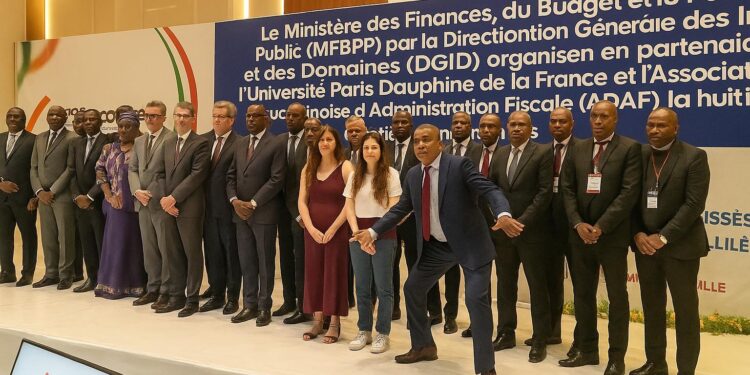Brazzaville Hosts Pan-African Tax Colloquium
Four intensive days of debate in Brazzaville gathered policy-makers, academics and private-sector leaders from fifteen African states as well as France, Belgium and Italy. The eighth International Colloquium on Taxation set a pragmatic tone: domestic resources must rise if economies are to fund development and resilience.
Discussions blended high-level panels with hands-on workshops, creating common ground between lawyers, engineers and revenue officers. Speakers agreed that traditional paper-based systems no longer match the scale of today’s fiscal challenges, especially in oil-dependent nations facing volatile prices.
By the closing session on 12 September, participants converged on one priority—digitisation of tax administration—as the quickest path to rebuild trust with taxpayers, cut leakages and strengthen macro-economic sovereignty.
Digital Platforms Reshape Trust and Compliance
Digital infrastructure was presented as a bridge, not just a tool. Catherine Lemesle emphasised that online filing gives citizens and firms clarity on obligations, fees and deadlines while offering administrations instant analytics to track compliance and target audits.
Experts argued that transparent interfaces reduce discretionary room for informal negotiations, historically cited as a source of both frustration and revenue loss. Automated cross-checks, they noted, encourage voluntary compliance and lower collection costs.
Arnaud Raynouard described the shift as a deep mutation comparable to earlier waves of customs modernisation. In his view, real-time data flows allow finance ministries to anticipate trends and react before gaps widen into deficits or arrears.
Congo’s E-TAX Rollout Shows Early Gains
The Republic of Congo already runs a national E-TAX portal for corporate income tax management and has introduced online VAT filing. Colloquium delegates highlighted these platforms as examples of incremental yet effective reform.
Ludovic Itoua reported that electronic channels have shortened processing times, reduced queues and improved cashflow forecasting for the treasury. Early performance indicators point to higher collection ratios without raising statutory rates, confirming the potential of efficiency-led mobilisation.
Officials now plan to extend the portal to personal income tax and local levies, integrate mobile payments and apply data matching to map the largely informal service economy. The revenue authority sees the roadmap as both technical and cultural, requiring sustained dialogue with business associations.
Training and Inclusion as Success Factors
Panellists stressed that software alone cannot guarantee success. Up-skilling frontline staff in data analytics, cybersecurity and taxpayer outreach emerged as a recurring recommendation.
Congo’s finance ministry has therefore earmarked additional budget for continuous learning modules, pairing seasoned inspectors with young digital natives to accelerate knowledge transfer. According to Itoua, this dual approach nurtures institutional memory while embracing innovation.
Broader inclusion also formed part of the debate. Participants called for simplified interfaces in local languages and affordable internet access so that small traders, women-led enterprises and rural producers can enter the formal tax net without daunting paperwork.
Fiscal Sovereignty and Extractive Revenues
Christian Yoka placed the digital agenda within a strategic push to consolidate fiscal sovereignty. He linked improved taxation to recent deliberations of Central African heads of state on boosting internal revenues and reducing dependence on external borrowing.
Maximising receipts from the petroleum sector remains pivotal for Congo, yet Yoka argued that predictable, transparent tax regimes help stabilise both public finances and investor expectations, thereby safeguarding output even in cyclical downturns.
Strengthened national legislation, supported by digital audit trails, is expected to close loopholes in profit transfer pricing and enhance the credibility of assessment processes, reinforcing public confidence in equitable burden sharing.
Regional Cooperation Strengthens Best Practice
Delegations from Cameroon to Morocco underscored the value of peer-learning platforms. Comparative dashboards presented at the colloquium revealed how staggered adoption of e-services allows countries to benchmark progress without duplicating costly experiments.
French and Belgian representatives offered insights into interoperable standards, while African colleagues shared lessons on rolling out mobile tax payments in low-connectivity zones. Such exchanges foster a continental knowledge commons that reduces vendor lock-in and promotes home-grown solutions.
Participants signalled interest in forming a permanent working group to track milestones, publish open data on collection efficiency and advocate for harmonised digital identifiers that facilitate trade as well as taxation.
Next Steps for Administration and Business
Congo’s tax authority is preparing stakeholder consultations aimed at further streamlining declaration procedures. Priority items include single-window filing, automatic issuance of compliance certificates and targeted amnesties that encourage informal operators to regularise status.
Companies welcomed clarity on timelines, noting that predictable interfaces lower administrative overheads. Many see the reforms as complementary to the government’s wider ambition of improving the World Bank’s Doing Business indicators and attracting diversified investment.
Looking ahead, officials intend to embed environmental considerations into fiscal policy, exploring incentives for reforestation and low-carbon technologies in alignment with Congo’s role as custodian of part of the Congo Basin forest. Digital tracking could certify such measures, linking revenue goals to sustainable growth.












































